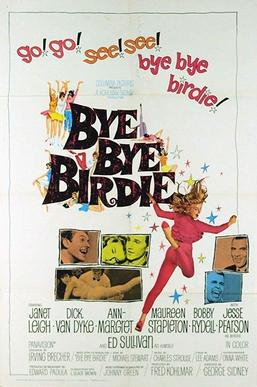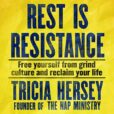The tl:dr is in whatever online communities you frequent, do you ever ask yourself “who isn’t here? Who doesn’t feel welcome here? What barriers are there to participation?” If not, you should. What I like about Twitter is how much more diverse it was than any place I’ve been online, and also how so many of us managed to create beautiful supportive communities there. People found their people there, but it was also so open enough that anyone could join into a conversation. I learned so much from so many people on there. I plan to stay on Twitter in solidarity with my community until it burns down, you can subscribe to my blog posts as an email newsletter here, and while I have a Mastodon account (@librarianmer@m.wolfwater.com) you can follow, I’m deeply skeptical that it’s going to be a good Twitter replacement.
As I’ve embraced slow culture more and more in my own life, one thing I’ve started doing is deeply interrogating my gut reaction to things rather than feeling an urgency to get my thoughts out there or to take action. Knowing that I’ve been raised in a white supremacist, patriarchal, heteronormative, christian society, I recognize that my first impulses or instincts (and likely all of yours too) are often informed by that noxious miasma we’ve been breathing all our lives. I take my time now. I observe more. I question my assumptions. I think this comes with the humility of recognizing that I don’t have all the answers, that I sometimes get things wrong. My “gut” is fallible. It helps to not feel like I’m grasping for anything anymore, be it a better job, innocence/goodness, more followers on social media, or the approval of others. Back when I was perpetually working to fill a hole inside, created by believing I was not enough, I was constantly looking for external validation. I don’t really need that anymore; I’m good where I am.
So instead of freaking out about Elon Musk buying Twitter, I’ve been observing. It’s been interesting to watch the dynamics of library workers’ reactions to it. I guess as someone with over 8,000 followers on Twitter, I should be more panicked about this, but I’m not. I’ve long had a love-hate relationship with Twitter. As a completist, I first struggled with the idea that I would miss most of the conversation. I took issue with platforms owning our content, and the lack of deep, thoughtful, reflective conversation. I’ve railed against social media mobbing and shaming. I’ve expressed concern about the ephemeral nature of our intellectual production on social media. I hated that Twitter was killing blogging. But in recent years, I’ve actually come to love my little corner of Twitter and the people I converse with regularly. It’s come to feel like a real community, but one that’s also very open and constantly growing and changing organically. Each of our communities look somewhat different. We have followers in common, but also many unique folks. I have gotten so much support and learned so much from my community. I wouldn’t be who I am today without them. They helped me see behind the veils of white supremacy, ableism, and other systems of oppression. At the start of COVID, we helped advocate together for better safety precautions and for libraries to close — sharing resources and letters, putting pressure on institution, etc. We celebrated each other’s wins and mourned together each other’s losses. I felt like I could be myself in that space. While I used to go to conferences and had time at work to collaborate with people outside my institution on projects, neither is really a possibility for me in my current job. My community on Twitter was a lifeline for me, a way to connect with library workers who shared my values and interests. I’d found my people. I wasn’t always super-active on Twitter. I sometimes wouldn’t post for weeks, but I always felt like I had an online home to come back to. It sucks that that might soon no longer be the case.
When I look back on that golden age of library blogging that I’d so idealized at the time, what I see now is how White it was. There was very little diversity of any kind. Given the percentage of women in librarianship, it was disproportionately male-dominated. I’d believed at the time that it was bringing down barriers because it gave people like me (a brand-new librarian working at a tiny college no one has heard of in rural Vermont) the opportunity to make an international name for myself, but I had that opportunity because I ticked certain boxes, and there were still so many barriers I didn’t notice until I saw the diversity on Twitter. Not that there aren’t power dynamics on Twitter too, but it brought down, to such a huge extent, the barriers to entry and helped people (who maybe were “the only” at their place of work) find their people. This has led me to look at any space I’m in (online or in-person) and wonder who isn’t here? Who doesn’t feel comfortable here? What barriers exist to participation? It’s also made me think of how the ways I participate may encourage or discourage others from participating. I recently realized that I was talking too much in a particular committee meeting and I’m trying to make sure I take up less space there. Shut up Meredith!
I locked my Twitter account a while back when I realized that I didn’t actually want to broadcast my thoughts more widely than the community I already had. I’d also had several run-ins with trolls over the years, the TERFs by far being the most offensive and abusive in response to my American Libraries column about the Seattle Public Library’s willingness to give them a platform. But mainly, I realized that I wasn’t looking for increased fame or reach or to go viral with people I don’t know. I wasn’t looking for more speaking or writing opportunities. I wasn’t looking for a new job or to climb a ladder. I was looking for community and I’d found it with a wonderful and diverse group of library workers. If you’re part of that group, please know that I am so grateful for you.
From people’s panic over being on a platform run by someone as unethical as Musk, you’d think they’d never used a social media tool run by a toxic person who set out to do everything in their power to exploit and make money off users (hi Mark!). The fact is, Twitter was already exploiting us and in much less obvious ways. The irony of people moving over to Instagram as a less morally-compromised alternative was rich. I haven’t used Instagram in over three years because I found it to be far more toxic than any other social media tool I’ve used. It depleted me rather than filled me up and I felt sick over what it was doing to young women’s senses of self. I dumped LinkedIn years ago. I tried a few Discords and I realized they weren’t for me for a few reasons. The first is that they felt cliquey and I’m deeply uncomfortable with spaces like that. The second is the amount of time one must devote in spaces like that to become part of the community. It privileges people without caregiving roles and people who have jobs where they can be on social media all day. That isn’t me. Even if I had a job in which that was possible, I am far too easily distracted to multi-task, so I keep social media off any device but my home computer. My work Slack is distracting enough. I had the same problem with FriendFeed back in the day and watched sadly as people I was really close to before my son was born got closer to one another on there and more distant from me. I’m definitely not looking to repeat that experience.
When Musk took over, a lot of people immediately moved to Mastodon, which is a network of decentralized servers running an open source social media tool called Mastodon. It allows for posting similar to Twitter, but with a larger character limit, and people can similarly like and repost your content. When you join Mastodon, you join a particular server run by an individual, a particular community. There are communities for specific geographic areas, for specific interests (furries, gamers, GNU Linux users), for specific industries (tech, librarians/archivist/museum folks, scholars), and also more general ones. You apply to join a particular server (some are closed, some are very restrictive about who they allow to join) which is your home base, but you can follow people on any instance if you can find them. There are tools for finding former Twitter peeps, but they don’t pick up everyone and so it can be hard to find “your people” again. I heard from one friend who is on three separate Mastodon servers in order to interact with different people about different areas of her life and that sounds beyond overwhelming. What I loved about my Twitter community is that I interacted with the same people about professional stuff as about personal. This feels like a step backwards.
The first thing that makes me uncomfortable is that I’d be using a server I pretty much know nothing about. I don’t know who runs each of these instances, but it’s a human being for whom this is a hobby. What if it gets hacked? What if they just decide not to maintain it anymore? What if they decide to close up shop and your identity and content? Yes, you can switch to other instances, but what if you get no notice and everything is gone? I don’t have my email on some random server run by a single person I don’t know. I’ve also been burned by enough open source projects in the past to feel really reluctant to commit to this. It feels like building castles out of sand close to the water line. Which maybe is fine given that it’s social media, but it does give me pause.
My concerns about Mastodon aside, the thing I noticed was that nearly all of the people I knew who were huge boosters for Mastodon, who ran from Twitter first, were White. The BIPOC and LGBTQ folks and people in the disability community who I follow were bringing up valid concerns about Mastodon and I was largely seeing those concerns blown off. One White library worker on Twitter compared it to criticizing lifeboats on a sinking ship <insert eyeroll here>. All of the people who I saw panicking over Musk buying Twitter were the people with the most privilege. I saw a similar dynamic amongst non-library workers too, so it wasn’t unique to our profession. There was an interesting essay entitled “Fleeing Twitter — The “Twexodus” — is About White Liberal Fragility” that astutely analyzed this trend. But even more than that, what does it say about you if you’re abandoning Twitter, at a time when content moderation is basically gone and there’s a significant rise in hate speech, when your friends who have less privilege and whose identities make them a target of harassment are staying? If White “allies” abandon Twitter, leaving their BIPOC, queer, trans, NB, and disabled “friends,” were they ever really allies?
I wish there were a wonderful place that is an obvious replacement for Twitter for me and the other folks who are still on there. It seems like for some Mastodon or Instagram or a particular Discord community really does fill that void. But I haven’t found that thing for me and I’m not interested in broadcasting my thoughts in another space that doesn’t fulfill my need for community. I’m not looking for an “audience” anymore and that’s not to knock people who are, but that’s just not where I am in my life. If I can’t find what works for me, I might just stick with blogging. I just started putting my blog content into a substack newsletter people can subscribe to via email (I still truly don’t understand the appeal of newsletters, but I know many do like getting their content that way). So if you’d like to get my random reflections in your Inbox, here’s your chance! My husband set up a Mastodon server for me and him, which at least gets me past my concerns about some rando hosting my content, so you can also follow me at @librarianmer@m.wolfwater.com, but I can’t promise this will be a long-term option for me. I mainly have it just in case Twitter blows up, which is looking more likely by the minute.
I plan to stay on Twitter until it literally burns to the ground or until the people in my community find a new place to be. For me, the social media experience is about the specific people in my community (not about me sharing my brilliant wit and comical observations), so there is no reason for me to go anywhere else until all of my friends on Twitter are gone. If we converse on Twitter, please know that YOU are the reason I spend time there; you are what makes it worthwhile for me. My tweets are locked and only visible to my 8300 followers. I have my Twitter account pretty well secured. Nothing I write on Twitter is something I’d be embarrassed about or is important enough for me to save. I feel safe enough.
For those who have found homes in other online communities, what does it offer that keeps you there? For those who haven’t, what features would make a community feel like home for you?
Image credit: Wikipedia






